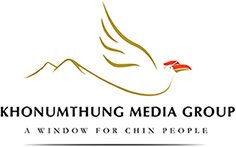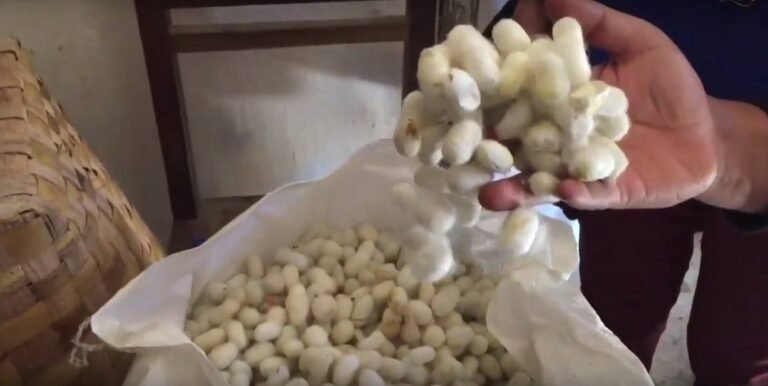A lawmaker and agriculture department official in Tonzang have been trying to bring back the once-famous business of silkworm breeding in the northern Chin State township.
Upper House parliamentarian for Tonzang Cing Ngai Mang told Khonumthung News that the initiative—which saw its heyday in the 1960s—could work well as a family business today.
“Silkworm breeding was a successful business in Tonzang town in the past. Silks were exported to Pyin Oo Lwin,” she said, referring to the Mandalay region hill town.
She explained that the industry was taken advantage of by unscrupulous buyers who gave Tonzang’s high quality silk lower grades in order to make a greater profit. “Later on, farmers faced difficulties and could not afford to run their silkworm breeding projects. That’s why this silkworm breeding business disappeared in Tonzang Township.”
In order to revive the tradition, Cing Ngaih Mang said that a fixed price for silk must be agreed upon, and that government loans should be given to farmers who would like to breed silkworms. Finally, a silk weaving factory must be established and local handmade silk products created
“Then our local people will have regular jobs and their businesses will be improved as well,” the MP explained.
Win Bo, the officer in Tonzang’s department of agriculture in charge of silkworm breeding, said that the practice was suitable for the region’s terrain and that there was strong potential for income.
“There is less farming area in our mountainous area. Therefore, our farmers cannot grow rice, peas, or corn,” he told Khonumthung News. “Currently, the silk cloth market is really big internationally—the demand for silk is really high. Silkworm farmers in Tonzang Township could earn money from this business. I believe their living standard could be improved. That’s why we have tried to resume this business.”
Locals in Tonzang bred silkworms from 1962 until 1979. It has been more than 40 years since anyone has undertaken the business in the area.


